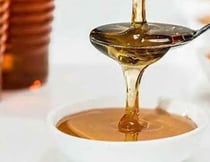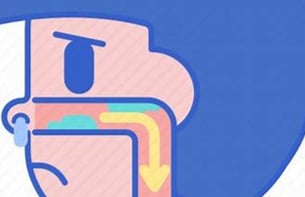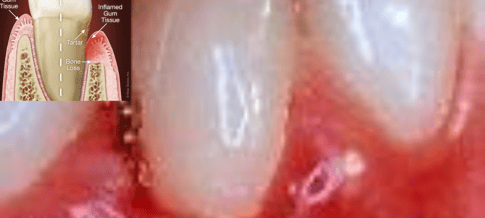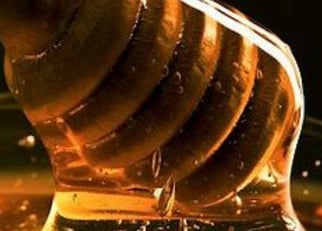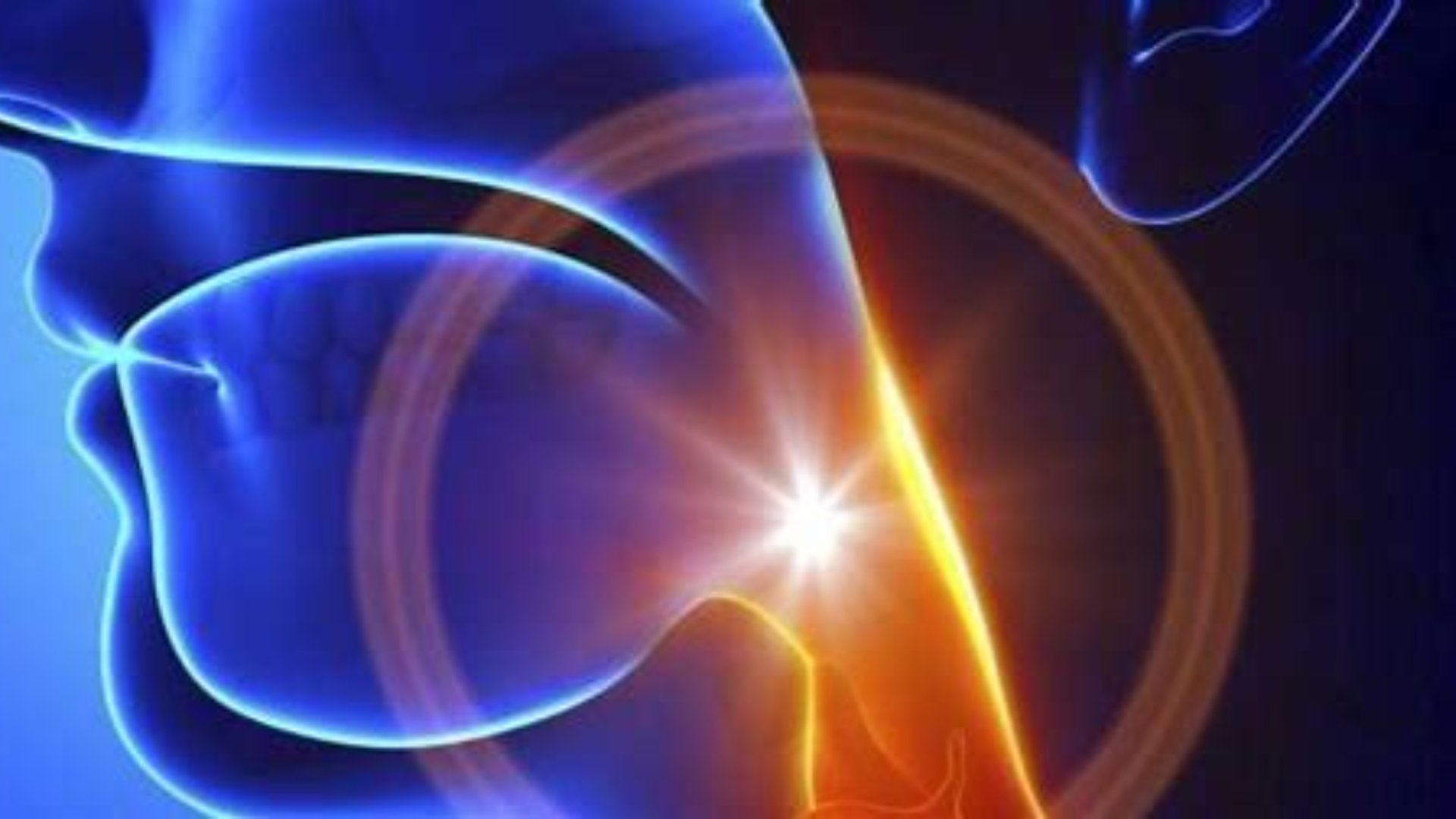
Postnasal Drip and Honey
Learn about the causes of postnasal drip, including bacterial, viral, fungal, and allergy triggers. Discover how a protein-rich diet can help soothe cough and boost your immune system..postnasaldrip
EAR NOSE AND THROATS OTOLARYNGOLOGY
Dr Hassan Al Warraqi


Postnasal Drip Symptoms, Treatment & Honey
also known as postnasal drainage, is a condition in which mucus drains from the nose and back of the throat.
It is a common symptom of allergies, the common cold, and the flu. It can also be caused by other conditions, such as sinusitis, chronic rhinitis, and acid reflux.
Symptoms of postnasal drip
The main symptom of postnasal drip is a feeling of mucus dripping down the back of the throat. Other symptoms may include:
A sore throat
A cough
A runny nose
Difficulty swallowing
Clearing of the throat
Nasal congestion
Earaches
Headache
Facial pain
Sinus pressure
Treatment for postnasal drip
The treatment for postnasal drip depends on the underlying cause.
If you have allergies, your doctor may recommend over-the-counter or prescription antihistamines or allergy shots.
If you have the common cold or the flu, there is no specific treatment, but over-the-counter medications can help to relieve your symptoms.
If you have sinusitis, your doctor may prescribe antibiotics or nasal sprays.
If you have chronic rhinitis, your doctor may recommend over-the-counter or prescription nasal sprays or antihistamines.
If you have acid reflux, your doctor may recommend over-the-counter or prescription medications to reduce stomach acid.
Home remedies for postnasal drip
In addition to medical treatment, there are a number of things you can do at home to relieve postnasal drip, including:
Using a saline nasal spray: Saline nasal sprays can help to loosen and clear mucus.
Drinking plenty of fluids: Staying hydrated can help to thin mucus and make it easier to clear.
Using a humidifier: A humidifier can add moisture to the air, which can help to soothe the throat and reduce inflammation.
Elevating your head at night: Elevating your head at night can help to reduce mucus drainage.
Avoiding triggers: If you have allergies, try to avoid your triggers. If you have acid reflux, try to avoid foods and drinks that trigger your symptoms.
Safety guidelines
When using saline nasal sprays, be sure to follow the directions on the package. Do not overuse saline nasal sprays, as this can dry out your nasal passages and irritate your sinuses.
When using a humidifier, be sure to clean it regularly to prevent the growth of mold and bacteria.
When elevating your head at night, use a wedge pillow or extra pillows to keep your head at a 30-degree angle.
fasting
There is no scientific evidence to suggest that fasting can cure or improve postnasal drip.
However, some people find that fasting can help to reduce their symptoms.
One possible explanation for this is that fasting can help to reduce inflammation.
Inflammation is a major underlying factor in many chronic diseases, including postnasal drip.
Another possible explanation is that fasting can help to improve the function of the immune system. A healthy immune system is better able to fight off infection and reduce inflammation.
If you are considering fasting to relieve postnasal drip, it is important to talk to your doctor first.
Fasting can be safe for most people, but there are some people who should not fast relatively , such as pregnant women, people with diabetes, and people with eating disorders.
Here are some tips for fasting safely:
Start slowly: If you are new to fasting, start with a short fast, such as 12 hours. Gradually increase the length of your fast as you become more comfortable.
Listen to your body: If you feel lightheaded, dizzy, or unwell, break your fast.
Stay hydrated: It is important to drink plenty of fluids
honey
while Honey has been used for centuries to treat a variety of ailments, including postnasal drip. There is some scientific evidence to support the use of honey for postnasal drip.
One study found that honey was more effective than over-the-counter cough syrup at reducing the frequency and severity of nighttime coughs in children with upper respiratory tract infections.
Another study found that honey was effective in relieving sore throats caused by postnasal drip.
Honey is thought to work in a number of ways to relieve postnasal drip. It has antibacterial and antiviral properties, which can help to fight off infection. It also has anti-inflammatory properties, which can help to reduce inflammation in the airways.
Honey is also a natural demulcent, which means that it can coat the throat and soothe irritation.
To use honey for postnasal drip, you can take a spoonful of honey on its own or add it to tea or warm water.
You can also make a honey and lemon gargle by mixing 1 tablespoon of honey with 1/2 cup of warm water and 1/4 cup of lemon juice.
Gargle with the mixture for 30 seconds, several times a day.
Honey is generally safe for most people to use. However, it is important to note that honey can cause allergic reactions in some people.
* Choose raw, unfiltered honey for the best results.
* Avoid using honey if you have diabetes or other health conditions that may be affected by sugar intake.
fasting intermittent Water is best, but you can also drink unsweetened tea or coffee.
Eat a healthy diet when you break your fast: When you break your fast, it is important to eat a healthy meal that is high in protein and fiber.
If your postnasal drip is severe or does not improve with fasting, see your doctor.
The five stages are:
1- Cleansing the mouth, teeth, gums, roof of the throat and tongue
2- Cleansing the nose and each nostril separately
3 - Around the nose and mouth, including the lips and skin, to prevent diseases and herpes
4- Cleanse the skin of the sinuses, eyes, nose, and ears
5 - Gargling and gargling with honey helps fight bacteria, viruses, allergies, and fungi to reach places that the brush did not reach.
This method is the method of Dr. Hassan Al-Waraqi:
1- It can be repeated without side effects and obtains quick results, perhaps within an hour or less
2- It can be tried without any significant financial or health costs
3- It prevents the recurrence of the disease and its return after stopping it, unlike modern treatments
4- Start treatment without regard to age, illness, gender, or other factors
5- It treats headaches without considering their many and varied causes
6- It treats allergies, regardless of the cause, without the effects of medications
7- It treats colds, colds, influenza, Covid-19 and its variants, and others
8- All diseases and the like in the mouth, gums, and teeth
9- Abscess or abscesses in the head area using this method with topical honey
10- It treats sinus infections or allergies
11- Treats gingivitis and receding gums
12- Treating tooth abscesses without intervention or surgery
13- Treats tonsillitis or abscesses around it
14- It treats bad breath and harmful breath
15- It treats painful mouth ulcers and prevents their recurrence, and I do not see any other treatment similar to it in strength and effect.
16- It may have referred to a chronic disease that must be treated, such as diabetes
keywords
Postnasaldrip,symptoms,treatment,fasting,honey,bacterial,viral,fungus,allergy,cough,immune,system,protein,fiber,unsweetened,tea,coffee,
Honey for Relieving Sore Throat, Cough, and Postnasal Drip
Honey is a time-honored natural remedy used to alleviate symptoms of sore throat, cough, and postnasal drip.
This article explores honey’s benefits, backed by scientific evidence and popular opinions, while providing safe and effective usage tips.
Optimized for SEO with keywords like "honey for sore throat," "cough relief with honey," and "postnasal drip treatment."
Benefits of Honey for Sore Throat and Cough
Soothing and Coating Effect
Honey forms a soothing layer over an inflamed throat, reducing pain and irritation. Consuming it directly by the spoonful maximizes this coating effect, as mixing it with drinks may dilute its potency.
Keywords: honey for throat relief, natural sore throat remedy.
Antimicrobial Properties
Honey’s antibacterial properties help combat minor throat infections, making it a popular choice for easing coughs caused by upper respiratory infections.
Keywords: honey’s antibacterial benefits, honey for cough.
Scientific Evidence
A study in BMJ Evidence-Based Medicine found that honey improves cough frequency, severity, and overall symptom scores compared to standard care, supporting its use as an effective home remedy.
Keywords: honey cough studies, science-backed cough relief.
Honey and Postnasal Drip
What is Postnasal Drip?
Postnasal drip occurs when mucus from the nose or sinuses flows into the throat, causing persistent coughing, discomfort, and throat irritation.
Keywords: postnasal drip, causes of chronic cough.
Honey’s Role
Honey helps relieve postnasal drip symptoms by:Soothing an irritated throat.
Reducing cough triggered by mucus.
Moisturizing the throat and aiding mucus clearance.
Take a teaspoon of honey directly or mix it with warm water or lemon juice for added benefits.
Keywords: honey for postnasal drip, natural mucus relief.
Additional Recommendations
Hydration: Drink plenty of water to thin mucus.
Nasal Rinse: Use a saline solution to clear nasal passages.
Steam Inhalation: Helps reduce congestion.
Medical Treatments: Consider corticosteroid sprays, decongestants, or antihistamines as advised by a doctor.
Keywords: postnasal drip remedies, mucus relief tips.
Nutritional and Anti-Inflammatory Properties
Rich Composition
Honey contains vitamins and minerals that vary by floral source, enhancing its nutritional value.
Antioxidants
Phenolic compounds in honey contribute to its antioxidant properties, helping reduce inflammation.
Anti-Inflammatory Effects
Studies show honey reduces inflammatory markers and supports tissue healing, reinforcing its role in soothing sore throats and coughs.
Keywords: honey’s nutritional benefits, anti-inflammatory honey.
Safe Usage Tips
For Children: Avoid giving honey to infants under 12 months due to the risk of infant botulism.
Quality: Choose raw, natural honey for maximum benefits.
Allergies: Honey doesn’t treat allergies, so consult a doctor if symptoms are allergy-related.
Moderation: Consume honey in moderation to avoid excess sugar intake.
Keywords: honey safety for kids, safe honey use.
Complementary Natural Remedies
Marshmallow Root: Traditionally used to soothe throats, similar to honey.
Pineapple Juice: Contains enzymes that may ease throat irritation.
Avoid Dairy: May increase mucus production, so limit during cough or postnasal drip.
Keywords: natural throat remedies, honey alternatives.
Conclusion
Honey is an effective natural remedy for sore throat, cough, and postnasal drip, thanks to its soothing, antimicrobial, and anti-inflammatory properties.
Supported by scientific studies and popular use, it works best alongside measures like hydration and nasal rinses. Consult a doctor if symptoms persist.
Keywords: honey benefits, home remedy for cough, natural postnasal drip relief.
Frequently Asked Questions About Postnasal Drip and Honey’s Role in Relief FAQS
What Are the Main Causes of Postnasal Drip?
Postnasal drip occurs when mucus from the nose or sinuses flows into the back of the throat. Common causes include:
Common Cold: Increases mucus production.
Allergies: Such as pollen, dust, or pet dander.
Sinus Infections: Acute or chronic, leading to mucus buildup.
Environmental Irritants: Dry air, smoke, or pollutants (e.g., fumes).
Upper Airway Cough Syndrome: A condition linked to chronic postnasal drip.
Other Factors: Hormonal changes, pregnancy, or medications affecting mucus production.
Keywords: causes of postnasal drip, sinus infection, nasal allergies.
What Are the Symptoms of Postnasal Drip?
Symptoms include:
Feeling mucus dripping down the throat.
Frequent need to clear the throat.
Chronic or intermittent cough, often worse at night.
Throat irritation or tickling sensation.
Excess mucus (phlegm) in the throat.
Nasal congestion or runny nose.
Bad breath.
Rarely: hoarseness or wheezing during breathing.
Keywords: postnasal drip symptoms, chronic cough, throat irritation.
How Can Honey Help Relieve Postnasal Drip Symptoms?
Honey is a natural remedy with properties that alleviate postnasal drip:
Antibacterial: Helps reduce minor infections associated with mucus.
Anti-Inflammatory: Soothes throat irritation caused by dripping mucus.
Moisturizes the Throat: Eases dryness and aids in clearing mucus buildup.
Cough Relief: Reduces dry or persistent cough triggered by drip.
Honey promotes overall comfort and may improve sleep disrupted by coughing.
Keywords: honey for postnasal drip, natural cough remedy, throat soothing.
Best Ways to Use Honey for Postnasal Drip
Direct Consumption: Take a teaspoon of raw honey for immediate throat relief.
Mix with Warm Drinks: Add a teaspoon to warm water or herbal tea to hydrate the throat.
Honey and Lemon: Combine honey with lemon juice in warm water to boost immunity and soothe irritation.
Moderation: Use 1-2 teaspoons daily to avoid excess sugar intake.
Tip: Choose raw, natural honey for maximum benefits.
Keywords: how to use honey, honey and lemon, home remedy for drip.
Other Home Remedies for Postnasal Drip Relief
Hydration: Drink 8-10 glasses of water daily to thin mucus.
Humidifier: Keeps nasal passages and throat moist, especially in dry weather.
Nasal Rinse: Use a saline spray or neti pot to clear mucus and irritants.
Saltwater Gargle: Reduces throat inflammation (half a teaspoon of salt in a glass of warm water).
Steam Inhalation: Place a towel over your head above a bowl of hot water for 5-10 minutes to loosen mucus.
Elevated Sleep: Use an extra pillow to reduce mucus flow during sleep.
Keywords: home remedies for postnasal drip, nasal rinse, hydration.
When Should You See a Doctor?
Consult a doctor if:
Symptoms persist beyond 10-14 days without improvement.
Concerning symptoms appear, such as:
Difficulty breathing.
Severe facial or sinus pain.
Persistent fever (above 100.4°F or 38°C).
Thick or colored mucus (yellow/green), indicating possible infection.
The doctor may recommend tests (e.g., imaging or allergy testing) or treatments like:
Steroid nasal sprays.
Antihistamines for allergies.
Decongestants or antibiotics if needed.
Keywords: when to see a doctor, serious postnasal drip symptoms, medical treatment.
Foods and Drinks to Avoid During Postnasal Drip
Dehydrating Drinks: Alcohol and caffeine (coffee, black tea) may worsen nasal and throat dryness.
Dairy Products: May increase mucus production in some people, so consider reducing temporarily.
Spicy or Fried Foods: Can further irritate the throat.
Personal Tip: Monitor your body’s response, as reactions vary individually.
Keywords: foods affecting postnasal drip, avoid dairy, throat dryness.
Can Postnasal Drip Indicate a Serious Condition?
In most cases, postnasal drip is benign, linked to colds or allergies. However, in rare instances, it may signal:
Chronic Sinusitis: Requiring long-term treatment or surgery in some cases.
Nasal Polyps: Benign growths causing obstruction and persistent drip.
Gastroesophageal Reflux Disease (GERD): May mimic postnasal drip symptoms.
Rare Conditions: Such as nasal tumors or immune disorders.
See a doctor if drip is accompanied by unusual symptoms (e.g., frequent nosebleeds or loss of smell) to rule out serious causes.
Keywords: serious postnasal drip, nasal polyps, chronic sinusitis.
Conclusion
Postnasal drip is a common condition caused by colds, allergies, or sinus issues, with symptoms like coughing and throat irritation.
Honey helps relieve symptoms due to its soothing and anti-inflammatory properties, especially when taken directly or mixed with warm drinks. Home remedies like hydration, nasal rinses, and steam inhalation enhance recovery.
Seek medical advice if symptoms persist or worsen to ensure proper treatment.
Keywords: postnasal drip treatment, honey benefits, mucus relief tips.
